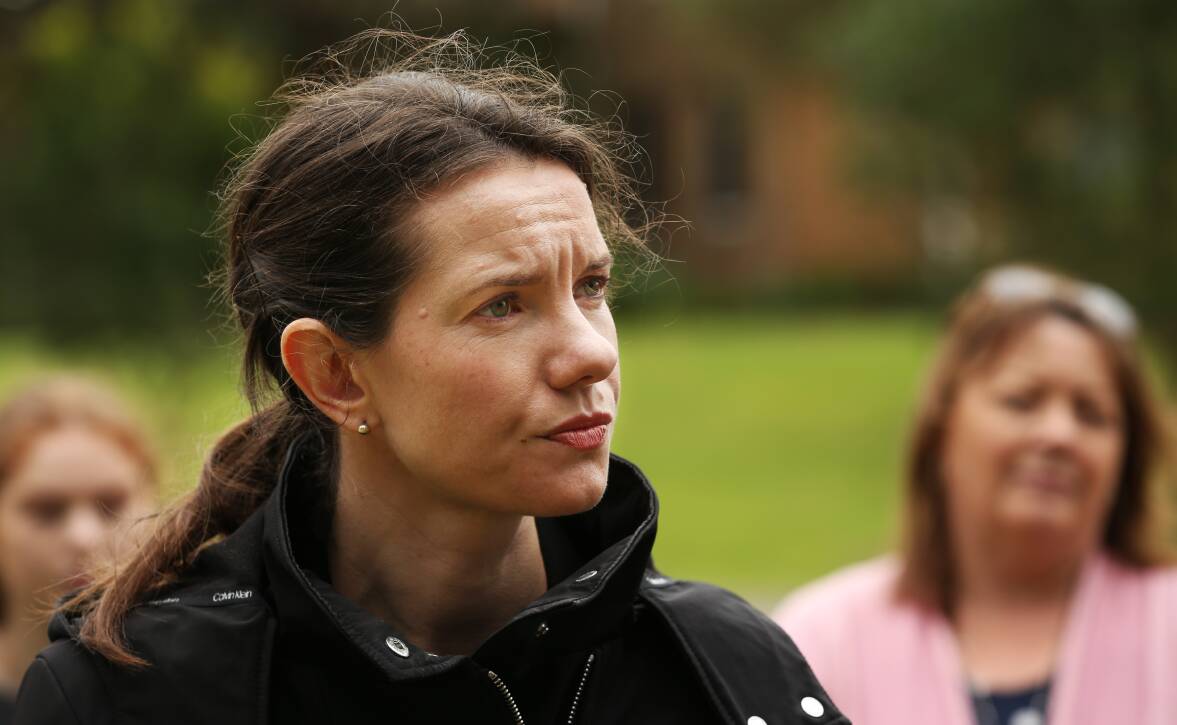
Hunter tourism and property figures say government plans to boost housing supply by reducing short-term rentals will have to address the fact that holiday houses are lucrative.
NSW Housing Minister Rose Jackson published a discussion paper on Thursday which suggests levies and day limits could squeeze short-term rental owners into the long-term rental market.
"This is an important next step as the NSW government continues to look at ways to address the housing crisis in NSW," a joint statement from Ms Jackson and Planning Minister Paul Scully said.
Homelessness NSW, Local Government NSW and Newcastle MP Tim Crakanthorp welcomed the move as a way of relieving pressure on the tight rental market.
Newcastle real estate agent Steph Jordan said owners had turned to short-term rental websites such as Airbnb because of the money on offer.
"Obviously financially it's attractive," she said.
"People are definitely getting a lot of money per night compared to what they might get a week.
"I know some people have quoted they're getting $300 or $400 a night instead of $700 or $800 a week."
Ms Jordan said short-term rentals also offered owners the flexibility of using the property themselves.
Another property agent, Scott Walkom, estimated owners could earn 50 per cent extra from a short-term rental, or even more for a property in a desirable location.
He said the government would have to provide "strong disincentives" to convince owners to convert their holiday houses into long-term rentals.
The government's discussion paper says Port Stephens local government area has the seventh-highest ratio of short-term rentals in the state at 4 per cent, or 1472 out of 34,100 private dwellings.
The Newcastle Herald reported in May last year that data from the AirDNA website showed more than half of the Hunter's 4957 short-term rentals were occupied for fewer than 90 days a year.
Port Stephens holiday rentals were booked for 47 per cent of the nights they were available in the previous year, while in Newcastle the occupancy rate was 67 per cent.
Department of Planning, Housing and Infrastructure figures supplied to the Herald on Thursday show Newcastle and Lake Macquarie have far lower proportions of holiday houses than Port Stephens.
Newcastle has 824 registered short-term stays, including 361 hosted and 463 non-hosted, out of 71,658 total dwellings, a ratio of 1.1 per cent.
Lake Macquarie has 291 hosted and 452 non-hosted for a total of 743, or 0.9 per cent of the LGA's 86,059 dwellings.
The non-hosted short-term rentals, which are those where no one lives full-time, total 915 across the two LGAs, or 0.6 per cent of all housing stock.
Cessnock has 760 short-term rentals out of 24,664 dwellings (3.1 per cent) and Maitland only 109 out of 34,397 (0.3 per cent).
The government discussion paper acknowledges efforts to build more houses will "not yield immediate effects" and that reducing short-term rentals "could make a difference sooner".
"The focus of the government has, therefore, shifted from addressing guest behaviour and neighbourhood amenity to the effects of short-term rental accommodation on the housing market and housing affordability," it says.
The discussion paper presents a host of options to discourage short-term rentals, including a levy on rental revenue, day fees per guest, higher registration fees, more onerous approval requirements and lowering the cap on how many days a property can be rented short-term.
All short-term rentals must be placed on a state register at a one-off cost of $65 and an annual renewal fee of $25.
Sydney, Ballina and parts of the Clarence Valley and Muswellbrook have a state-imposed cap of 180 days per year a "non-hosted" property can be let as a short-term rental.
The cap in Byron Shire will drop to 60 days in September.
Destination Port Stephens chair Sarah Smith, Ms Jordan and Mr Walkom agreed that increasing costs for owners could lead to higher asking prices for short-term rentals.
"I guess it would have to be something absorbed into the cost of booking a holiday house," Ms Smith said.
"I would assume that the people who own the houses would pass that on."
Ms Jordan said higher costs would "definitely encourage some people to move back to the traditional rental method, however, it also could have the effect where they just keep increasing the prices".
"I swear every time I seem to go on to have a look at somewhere to stay it gets more expensive," she said.
Ms Smith said visitors staying in short-term rentals were a "huge part" of the Port Stephens tourist economy all year round.
Mr Walkom said any moves to increase rental stock would help relieve pressure on a "tough" market.
"I've never been so popular with friends of friends from a hundred years ago ringing with kids going to uni who want a place," he said.
"Newcastle has got a lot tighter because of a lack of construction, I think."
The discussion paper says revenue raised from new short-term rental levies or fees could be used to fund homelessness support services.
"The aim is to balance the ongoing housing affordability pressures throughout NSW with supporting tourism and economic activity throughout the state," the paper says.
The Herald reported this week that the number of people seeking homelessness services had increased 79 per cent from 2015 to 2023.
Mr Crakanthorp said the discussion paper was designed to kick off a discussion and feedback about how to address the housing crisis.
"We have a huge problem in Newcastle," he said.
"Our homelessness stats have got a lot worse since 2024-15 and we still have 1770 people on the waiting list for social housing."







